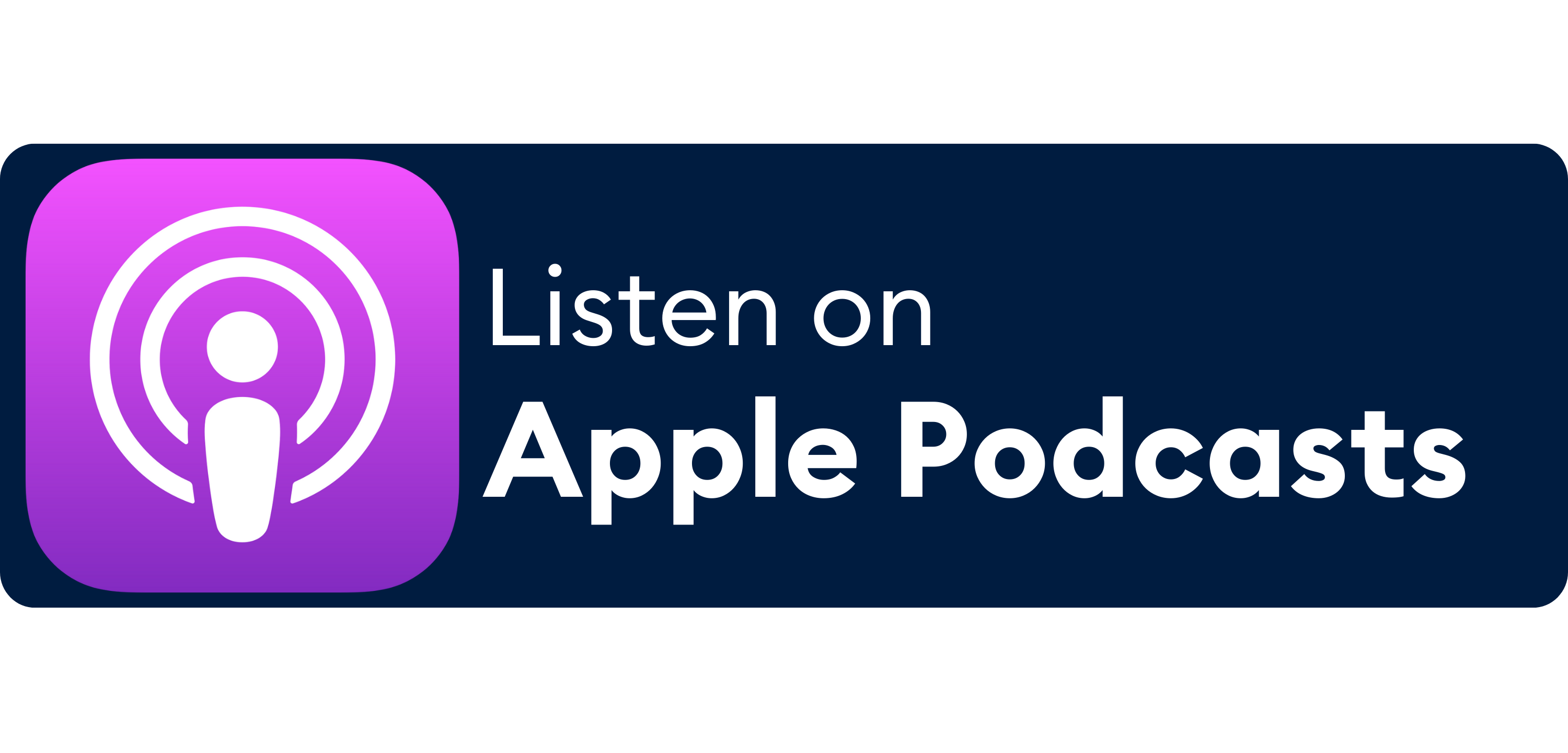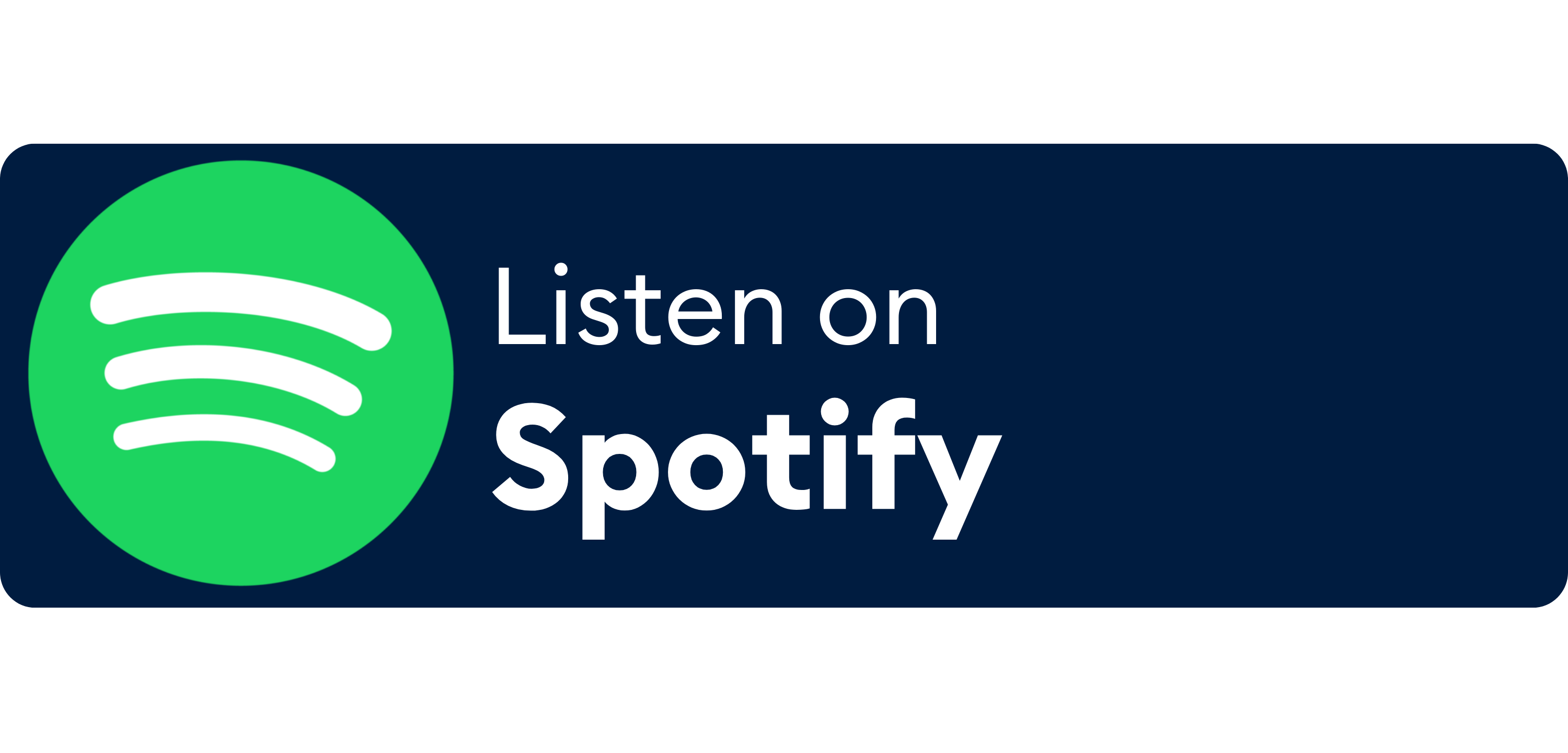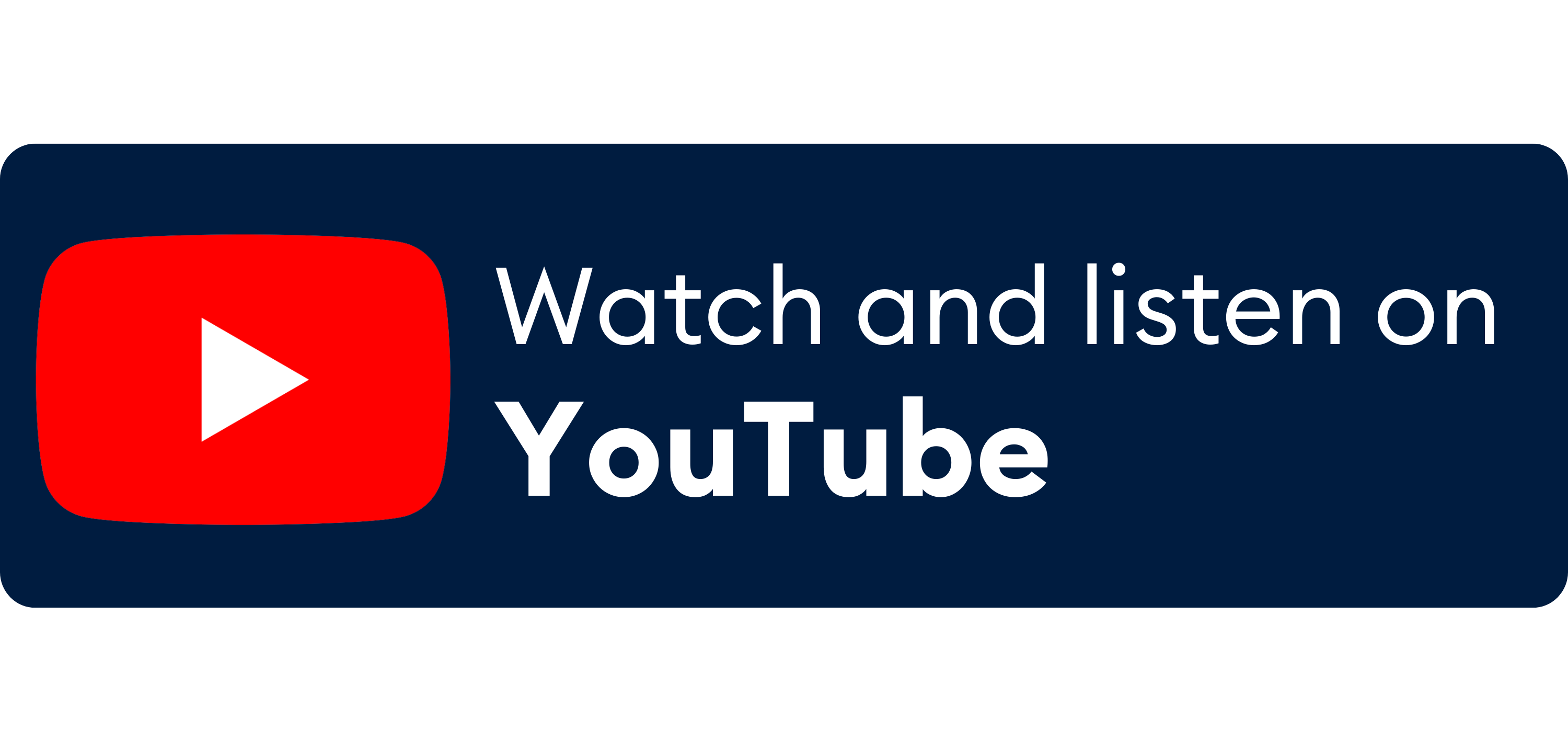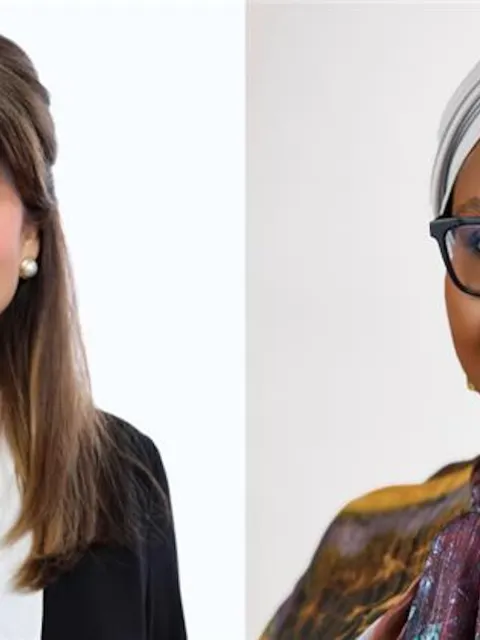Podcast "Let's Talk Cancer": Providing access to affordable, quality cancer care for all
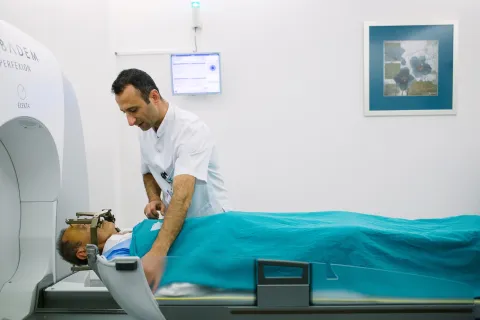
Half the world's population still lacks access to essential health services, including cancer care. Universal health coverage is key to changing this.
Senator Dr Sania Nishtar, Former Special Assistant of the Prime Minister on Poverty Alleviation and Former Federal Minister, Pakistan, provides insights into the often-overlooked issue of integrating comprehensive cancer services into national health benefits packages and the challenges faced by governments in achieving this goal.
Ahead of the UN high-level meeting on UHC, this podcast episode provides a deeper understanding of the significance of UHC for cancer patients and the steps needed to ensure that no one is left behind.
Cancer treatment in UHC is hugely important. When you look at the cost of treatment, cancer care is at the highest end of the spectrum. But when governments opt for universal health coverage, it is cancer care that is left out.
- Senator Dr Sania Nishtar, Former Special Assistant of the Prime Minister on Poverty Alleviation and Former Federal Minister, Pakistan.
See podcast transcript below
Listen on: Spotify | Stitcher | Apple Podcasts | Amazon Music | Audible | Deezer
Get notified of new podcasts by email
Podcast transcript
Cary Adams: Welcome to Let's Talk Cancer. I'm Cary Adams and I'm the CEO of the Union for International Cancer Control. Universal health coverage, or UHC, plays a fundamental role in ensuring equitable access to health care and providing comprehensive and affordable cancer services. UHC is centered on three key dimensions access to health services, financial risk protection and the quality of services. It aims to guarantee that everyone who needs health services can access them without suffering financial hardship. However, half the world's population still lacks access to essential health services, including cancer care. The cost of cancer treatment often drives families towards financial ruin, underscoring the urgent need for the integration of cancer services into universal health coverage schemes. But it's not just about cost. It's also about inclusivity and breaking down barriers to access for marginalized communities. Joining us today is Dr. Sania Nishtar, a prominent Pakistani physician, cardiologist and senator, as well as the former federal minister of health of Pakistan and the founder and president of Heartfile and non-profit, non-governmental think tank that aims to catalyze change within the health sector in order to improve health and social outcomes. Sania, thank you for joining us today. We've worked together in the past, and I've always been so impressed with the impact that you've had globally.
Dr Sania Nishtar: Thank you so much for reaching out to me and thank you for catalyzing this conversation on a very important subject.
Cary Adams: Could you please elaborate for us why universal health coverage is so important, particularly on the issue of avoiding that terrible situation where people have financial ruin because of their health?
Dr Sania Nishtar: I view universal health coverage within the broader context of the state's relationship with its citizens, with its people. Because a state and a country and a government is meant to uphold certain rights of its people within the realm of civil and political rights, the right to health is one of the most salient rights, and the policy lever to achieve that is universal health coverage. And the financial access to services is a very important responsibility of the state, of a government, because it is absolutely unacceptable for people to be at the brink of financial ruin, for people to be pushed into poverty, for them to risk everything that they own just because they face an illness within the family.
Dr Sania Nishtar: Often we find, Sania, that cancer treatment and care is not included in UHC thinking. Perhaps you could talk about that. What are your thoughts about cancer treatment and care in UHC?
Dr Sania Nishtar: Cancer treatment in UHC is hugely important. You know, when you look at the cost of treatment, cancer care is at the highest end of the spectrum. And when you talk about the risk of families experiencing the risk of financial ruin, cancer care would be on top of the list in terms of the causes of that. And as opposed to this, when governments opt for universal health coverage, it is cancer care that is left out. Now, why is that the case? That is the case because when governments, especially political governments, espouse universal health coverage as a policy goal, they realize it's very useful. They realize it's very valuable. They realize it's valuable for people and it's valuable for their political objectives. But often they look at their financial purse and the fiscal space within the government and they realize that they do not have enough fiscal space to cover everyone. So what is the option available to them? The option available to them is that they announce that they will start with a basic package of services, and as things evolve, they will include the high-cost treatment within the rubric of financial health coverage and their universal health coverage policy. So inevitably they veer towards starting with primary health care, starting with mother and child care, starting with infectious disease, and packaging it as a basic package of services around which they tie the universal health coverage ribbon and present it as a gift to their people with a promise at a future time they will include cancer care. And in many countries that's not the case.
Cary Adams: What are the key arguments do you think for the cancer community to press governments to at least put some element of cancer treatment and care in their universal health coverage approach? I'm thinking, for example, some of the common cancers like breast cancer, where screening programmes and the availability of fairly simple treatment options are available. How do you think we need to make the case when talking to governments?
Dr Sania Nishtar: You should try to bring up the moral argument. So governments tend to announce universal health coverage for cesarean sections, for instance. Now, if childbirth is expected in a family, the family prepares for that and it is rarely impoverishing for them to pay for a cesarean section. But in the case of cancer care, it is something that the family is never prepared for. And cancer care is something that is most impoverishing for families. It is something which is more likely to bring them at the verge of a financial ruin at the direst moment in in that family's life. So I think that the argument that you need to make when you advocate is to stress that universal health coverage has to be meaningful. It doesn't have to be lip service. It doesn't have to be a tick the box. It has to be a meaningful proposition for the citizens, for the families within the country, and that it's the government's responsibility to raise the appropriate revenue to pay for that. And I think that you as cancer advocates, when you call for universal health coverage in a particular country setting, you should look at how the country is mobilizing revenue. I'll give you an example. In my country of 240 million individuals, it's less than a million people who are paying taxes. We are one of the worst tax to GDP ratios with a very high tendency to evade tax. And for a government to come round to you and say that we do not have enough fiscal space to pay for universal health coverage, we do not have enough fiscal space, you know, to incorporate cancer care into our universal health coverage policies is unacceptable.
Cary Adams: Sania, you reminded me of certainly someone I've admired for many years, Sir George. Elaine, who once said to me that, you know, "good advocacy appeals to the head, the heart and the pocket". And he said, "Never forget the pocket". You know, we need to make the argument on why investing in health is an investment for the country. And it sounds like in Pakistan you've become very conscious of the fact that, you know, raising funds and reinvesting it into the health of the community is the right way forward, perhaps. Could you talk about what was the journey that you and the government went through in the thinking?
Dr Sania Nishtar: So I think we were a bit fortunate because as our Prime Minister, Imran Khan had established Shaukat Khanum Hospital, dedicated Cancer hospital in the country, totally unprecedented. And in that hospital setting, he combined four things. He combined his own star value to mobilize resources. Secondly, that equation combined that massive philanthropic giving, which is characteristic of the Pakistani society, which he tapped. Thirdly, he combined it with good governance. And fourthly, he combined it with with astute technical expertise. And this package of these four attributes led to the burgeoning of this hospital ecosystem, which started with one hospital, and it's now extended to three. And when he established that hospital before he became prime minister, he was convinced that financial risk protection and universal health coverage were the right things to do. And then I joined him as the Minister for Social Protection in his Cabinet, and he did not need much convincing. So in Pakistan we had a very large social protection program. Even in this resource constrained environment we invested and I don't want to use the word spend, I want to use the word invested because you've very clearly outlined, you know, that investment versus versus cost equation in your question. So Pakistan invested more than a billion and a half dollars annually for a very large social protection program at the federal level. And because we are a decentralized country, the provinces spent nearly an equal amount of money on the health side. So it required building the institutional arrangement, you know, carving out the budget as a conscious decision, building the digital backbone, the delivery mechanism, the governance and integrity, the rigorous follow up. And it's not just policy and strategy. You really have to monitor delivery. That is how we started on this journey and continued for three and a half years till the government lost a vote of confidence. We are currently in the opposition now and we continue to play a very active role in holding the incumbents to account when they detract from their from the welfare journey that we started on. And it is a struggle. Being in the in politics is a struggle. When you're in the government you have to have a very rigorous implementation diligence and plan. When you're in the opposition, you try and hold the incumbents to account. So the journey continues.
Cary Adams: I have the benefit of running a non-government organization, so I avoid all the politics and I appreciate that at the end of the day, health is a political issue and it needs a strong opposition and it needs a strong government in order to continue the good work of the previous government. Perhaps I can just pick up on what you said about your three hospitals in place. One of the challenges in cancer treatment, obviously, is that the cancer treatment centers tend to be placed in the large urban environments, which means that the rural community doesn't have easy or quick access or maybe a cost of access to get to the treatment they need. So there is always a bit of a challenge with cancer by solving the problem and you create disparities. Now universal health coverage, of course, is something which hopefully reduces those disparities over time. So what are your thoughts about how UHC can help rural populations or marginalized populations in a country.
Dr Sania Nishtar: So specialized cancer care on its own is very difficult to set up. It's a choice between not having it versus having it in defined locations where you are likely to have staffing and infrastructure and connectivity and hardware maintenance and hospital setups. And in our country we do not have specialized cancer care in rural areas, in primary health care settings, even in district hospitals. But yes, it does exist in large cosmopolitan cities. And people are willing to travel to large cosmopolitan cities for care if it is available. But the key issue is financial access to care. And that is what our government tried to overcome that if we have care in defined locations and if people are willing to travel to those locations, which is not an ideal situation, I agree, at least they should not have to face the financial access barrier. Cancer is not all about treatment. It's about sustained institutional support for mature cancer registries to facilitate cancer surveillance. It is about prevention across a number of different realms integrated behavior change, communication, which should reach the last mile and the rural areas should not be excluded from that. From that, it's about upholding national environmental quality standards and preventing carcinogens in industrial settings. It's about stricter enforcement of labor laws across industry that may be present in the rural areas as well. It's about stringent regulations concerning chemical handling in industrial settings, a lot of which are in urban suburbs that border rural areas. So I shouldn't give the impression that it's that cancer management is all about what happens in urban areas. You should have capacity in the health system at the primary health care level to to do opportunistic screening for breast cancer, for prevention messaging, to pick up early signs of cancer, to be able to make the right referrals. And yes, you should have capacity within the primary health care system for pain relief and palliative care and for rehabilitation. But yes, when it comes to chemotherapy, yes, when it comes to surgery, the port of call is within the urban settings. And our government realized that overcoming the financial access barrier is something that we could ease immediately and something that is most challenging for patients. And that's what we wove into our social protection policy.
Cary Adams: Sania It was very pleasing to hear that you covered so much of the cancer control challenge there, which starts off obviously with prevention, then early detection and hopefully treatment and care through to palliation if that's appropriate. And something which you UICC believes has to be considered in the whole. However, in the UHC debates, we often find that the focus is very much on availability of treatment. And as we know with cancer, a key issue is early detection. Stage one, stage two most cancers can be pretty much treated successfully. Stage three, four it's more complicated, more difficult. Survival rates are much lower and it's also more costly to treat as well. So it doesn't surprise me that you have mentioned all of those issues about early detection, screening, etcetera. But do you sense that they aren't really thought of as being UHC issues? Or what is the Pakistan approach that? Do you consider or have you considered it to be part of the overall UHC package?
Dr Sania Nishtar: So I think there's politics and then there is the technical, evidence-based approach to things. So the politics of UHC is that when you "sell", for lack of a better expression I'm using this word, when you sell the health card concept, when you sell financial risk protection for individuals, when you sell health insurance, it is a lot more sellable because political governments get a lot more bang for the buck. But when you make a case for institutional support for cancer registries or when you talk about stringent regulations around chemical handling and strict enforcement of labor laws, you do not find allies within the cabinet. You tick off a lot of private sector stakeholders because a lot that is about cancer prevention involves stepping on the toes of stakeholders in the industrial space. And if you try to package it as universal health coverage right up front, you're not going to get any support. So it's best that you try and get something in your pocket that resonates with everyone. So a health insurance scheme which enables people have free surgeries in door care makes sense to everyone. It keeps the politicians happy. It keeps the cabinet colleagues happy, it keeps people happy. And that's how you start. And when you start, then you start making a case for other things as well on the grounds of cost of treatment. That we need to push down cost of treatment. It's costing the government more in premium because we don't have X and Y and Z. And that's how you make inroads. Politics is tough. Making a case for something at the cabinet level is extremely difficult because you have to you have to fight with the Minister of Industries, minister of commerce, minister of finance. And political governments always tend to look at things with a political lens that that is a sad fact. So for technocrats like myself who have a chair at the table, you have to be very savvy to make a case.
Cary Adams: Sonia, let's continue that political theme because we are about to attend the UN high level meeting on universal health coverage taking place in New York. All governments will be there. They will be committing themselves, hopefully to a very strong political declaration on how important UHC is. What are your hopes with regard to the outcome from that particular meeting? Do you think we will see some more energy and enthusiasm at national level around the world on the implementation of UHC?
Dr Sania Nishtar: So a lot of people think that these high level meetings are of no use. There's a lot of rhetoric, little action to follow. And I've heard a lot of critics go on and on about this. Now, I understand that the high level meetings are heavy on rhetoric, but you have country delegations from all around the world sitting. And it certainly cascades into a significant level of advocacy, if nothing else. So notwithstanding their weaknesses, the high level meetings are very important because they really help to create awareness about the importance of particular sectoral issues. But I think from there on, then countries need to understand that it's a win win situation for them to embark on this journey. Do not be shy of telling governments that UHC is also a political win because ultimately political governments will do things that resonate with their voters. And they need to understand that not only is UHC the right policy choice from a human security perspective, but that it is also the right political choice. So I think that the real work will start after the high level meeting, and I think the set of NGOs within the NCD Alliance family that have been so close to are going to have a very important role. The World Heart Federation, for instance, has chapters in every country, has cardiologists from every country as its members. And I think to mobilize that critical mass of technical individuals who can bring to bear the importance of UHC as far as their governments are concerned, is going to be very critical after the high level meeting. And this will require a sustained movement, not just a one off.
Cary Adams: I think you're right, Sania, from my perspective and I've been to a number of the high level meetings as you have, and there is a certain degree of cynicism about them. But I think it helps break down some myths and misconceptions about a particular issue because it gives some countries like yourself, for example, the opportunity to show what the art of the possible is with political will and with the support of civil society and with the appropriate financial support from the finance minister and a country. It shows it breaks down those myths and misconceptions that it can't be done because we're able to show great examples of progress. And of course, the other thing is, it gives civil society an opportunity to go back, as you say, after the meeting and say, okay, we've made these commitments, now let's see how we can make it happen. So I agree with you. I think it is a one off meeting, but it's a start point for a dialogue between all of the key players in the country to say, now where do we go now? Sania, I look forward to seeing you at the New York meeting. Always a pleasure to talk to you. As ever, your insights have been invaluable. I did start this meeting thinking that we would be talking about financial coverage, which is always a challenge, but actually your views and perspectives on the political dimensions of UHC and the discussions that take place at a cabinet level and a government are great insights. And thank you very much for giving us your time and your experience in this particular subject.
Dr Sania Nishtar: Thank you, Cary. Always a pleasure to speak to you.
Cary Adams: Thank you for listening to Let's Talk Cancer. We hope you enjoyed the episode. If you're interested in learning more about universal health coverage and cancer, don't hesitate to visit our website and view recordings of the virtual dialogues on this topic. If you have a moment, please do give us a rating and share the podcast. It really helps to reach a wider audience and inform more people about issues surrounding cancer control. For questions and comments, don't hesitate to get in touch at communications@uicc.org
Last update
Monday 18 September 2023